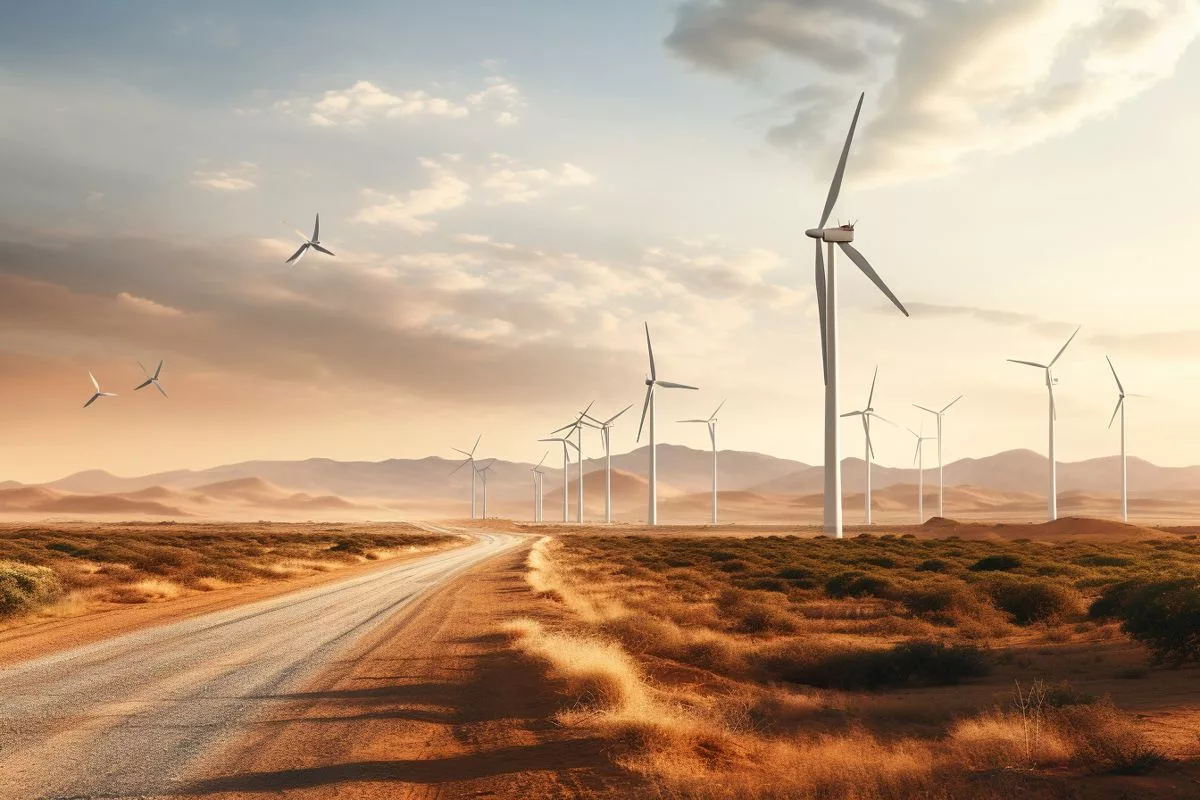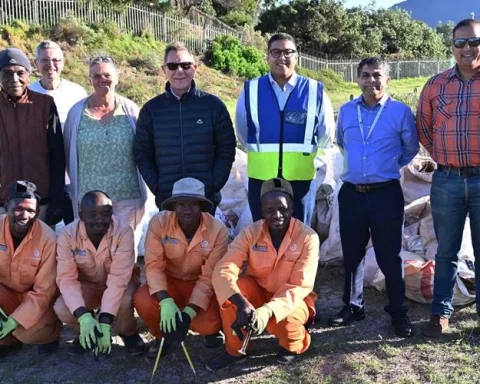South Africa is leading the way in the green hydrogen revolution. Its ambitious plans to use hydrogen energy to combat climate change, boost economic growth, and enhance energy reliability could potentially reduce the nation’s emissions by 10 to 15%. The Hydrogen Society Roadmap for South Africa outlines the country’s goals to build a globally competitive hydrogen economy, and its success could contribute an additional 3.6% to South Africa’s GDP by 2050, generating over 370,000 jobs. South Africa’s robust capital markets and favorable conditions for renewable energy generation make it uniquely poised to spearhead this revolution.
South Africa’s Green Hydrogen Revolution: A Blueprint for Sustainable Future
South Africa’s Ambitious Hydrogen Plans
In the very core of South Africa, an energy transformation is rapidly taking shape. The country’s Minister, Blade Nzimande, recently unveiled ambitious strategies to leverage hydrogen energy as a means to combat climate change, stimulate economic growth, and enhance energy reliability.
South Africa, with its abundant platinum group metals, has been investigating the possibilities of hydrogen since 2007. The National Hydrogen and Fuel Cell Technologies Research, Development, and Innovation Strategy was a groundbreaking initiative, aimed at fostering a globally competitive, inclusive, and low-carbon economy.
In alignment with this, Sasol, the country’s major energy and chemicals company, has been exploring methods to transition from grey hydrogen to green hydrogen. The objective is to produce sustainable aviation fuels and other products, thereby helping to decrease greenhouse gas emissions.
The Promise of Green Hydrogen
Green hydrogen, a form of energy obtained from renewable energy and water resources, holds significant promise in South Africa’s energy transition. Predictions suggest that it can potentially reduce the country’s emissions by 10 to 15%, thereby enhancing the nation’s long-term energy security.
In 2021, a noteworthy milestone was achieved with the endorsement of the Hydrogen Society Roadmap for South Africa. This all-encompassing policy document illustrates the nation’s goals to build a globally competitive hydrogen economy. It defines explicit targets and describes the roles of different stakeholders, including the government, industry, academia, and civil society.
As an energy medium, hydrogen holds the potential to decarbonize various transport sectors, including heavy-duty road vehicles, shipping, and aviation. It could also help convert energy-intensive industries like iron and steel, chemical production, mining, refining, and cement into more sustainable sectors.
The Hydrogen Society Roadmap
Furthermore, the roadmap expresses intentions to establish an export market for green hydrogen and ammonia. It also seeks to encourage the greening and stabilization of the power sector with an emphasis on building infrastructure. One of its long-term goals is to escalate the production, storage, and distribution of all forms of hydrogen, with a conscientious transition from grey to blue to green hydrogen.
This bold plan is complemented by concrete steps. Nine influential projects, including the Platinum Valley Initiative, have been identified as Strategic Integrated Projects. The focus of the Platinum Valley Initiative is on hydrogen production, the development of local manufacturing abilities, and the support of a fair energy transition. This initiative will catalyze infrastructure development and enable large-scale hydrogen trade connected to South Africa’s ports.
Sasol and the Northern Cape Provincial Government have achieved significant progress with a master plan for a special economic zone centered around green hydrogen. By 2030, they aim to install 10 gigawatts of electrolyser capacity in the Northern Cape, leading to the production of about 500 kilotons of hydrogen per year. Plans for 40 gigawatts of electrolyser capacity are also underway for 2050, which would necessitate around 80 gigawatts of renewable energy.
Economic Growth and Global Impact
This hydrogen economy is not solely about energy transition; it also entails economic expansion. The hydrogen economy could contribute an additional 3.6% to South Africa’s GDP by 2050, generating over 370,000 jobs.
Internationally, South Africa is assuming a crucial role. The Department of Science and Innovation took on the Chairmanship of the International Partnership for Hydrogen and Fuel Cells in the Economy (IPHE) in December 2022. For the next couple of years, South Africa will advocate for the development of the hydrogen economy across Africa, fostering gender equality and social inclusion.
The exploitation of Africa’s green hydrogen potential necessitates collaboration with global participants and investors. With its robust capital markets and favorable conditions for renewable energy generation, South Africa is uniquely poised to spearhead this revolution.
In summary, South Africa’s vision for a green hydrogen economy is deeply ingrained in its Just Energy Transition Investment Plan, which has garnered $8.5 billion in pledges to aid the country’s shift away from fossil fuel. The establishment of a green hydrogen economy is not merely an energy transition strategy; it represents a blueprint for job creation, economic growth, and a sustainable future.
1. What is South Africa’s plan for leveraging hydrogen energy?
South Africa plans to leverage hydrogen energy as a means to combat climate change, stimulate economic growth, and enhance energy reliability.
2. What is green hydrogen and what promise does it hold for South Africa?
Green hydrogen is obtained from renewable energy and water resources, and it holds significant promise in South Africa’s energy transition. Predictions suggest that it can potentially reduce the country’s emissions by 10 to 15%, thereby enhancing the nation’s long-term energy security.
3. What is the Hydrogen Society Roadmap for South Africa?
The Hydrogen Society Roadmap for South Africa outlines the country’s goals to build a globally competitive hydrogen economy. It defines explicit targets and describes the roles of different stakeholders, including the government, industry, academia, and civil society.
4. What are the concrete steps being taken towards building a green hydrogen economy in South Africa?
Nine influential projects, including the Platinum Valley Initiative, have been identified as Strategic Integrated Projects. The focus of the Platinum Valley Initiative is on hydrogen production, the development of local manufacturing abilities, and the support of a fair energy transition. This initiative will catalyze infrastructure development and enable large-scale hydrogen trade connected to South Africa’s ports.
5. What is the potential impact of South Africa’s green hydrogen economy on the nation’s GDP and job market?
The hydrogen economy could contribute an additional 3.6% to South Africa’s GDP by 2050, generating over 370,000 jobs.
6. How is South Africa assuming a crucial role in the development of the hydrogen economy globally?
The Department of Science and Innovation took on the Chairmanship of the International Partnership for Hydrogen and Fuel Cells in the Economy (IPHE) in December 2022. For the next couple of years, South Africa will advocate for the development of the hydrogen economy across Africa, fostering gender equality and social inclusion. The exploitation of Africa’s green hydrogen potential necessitates collaboration with global participants and investors.












